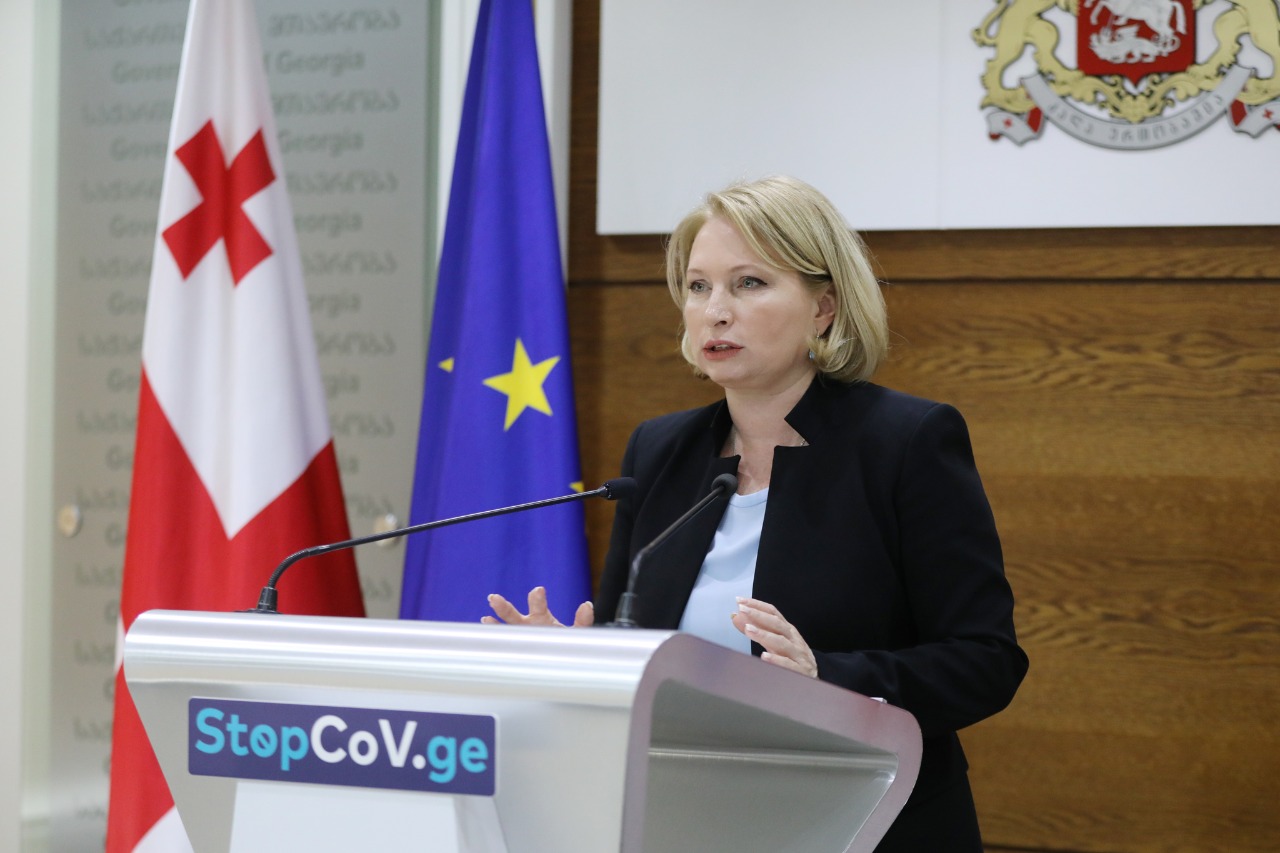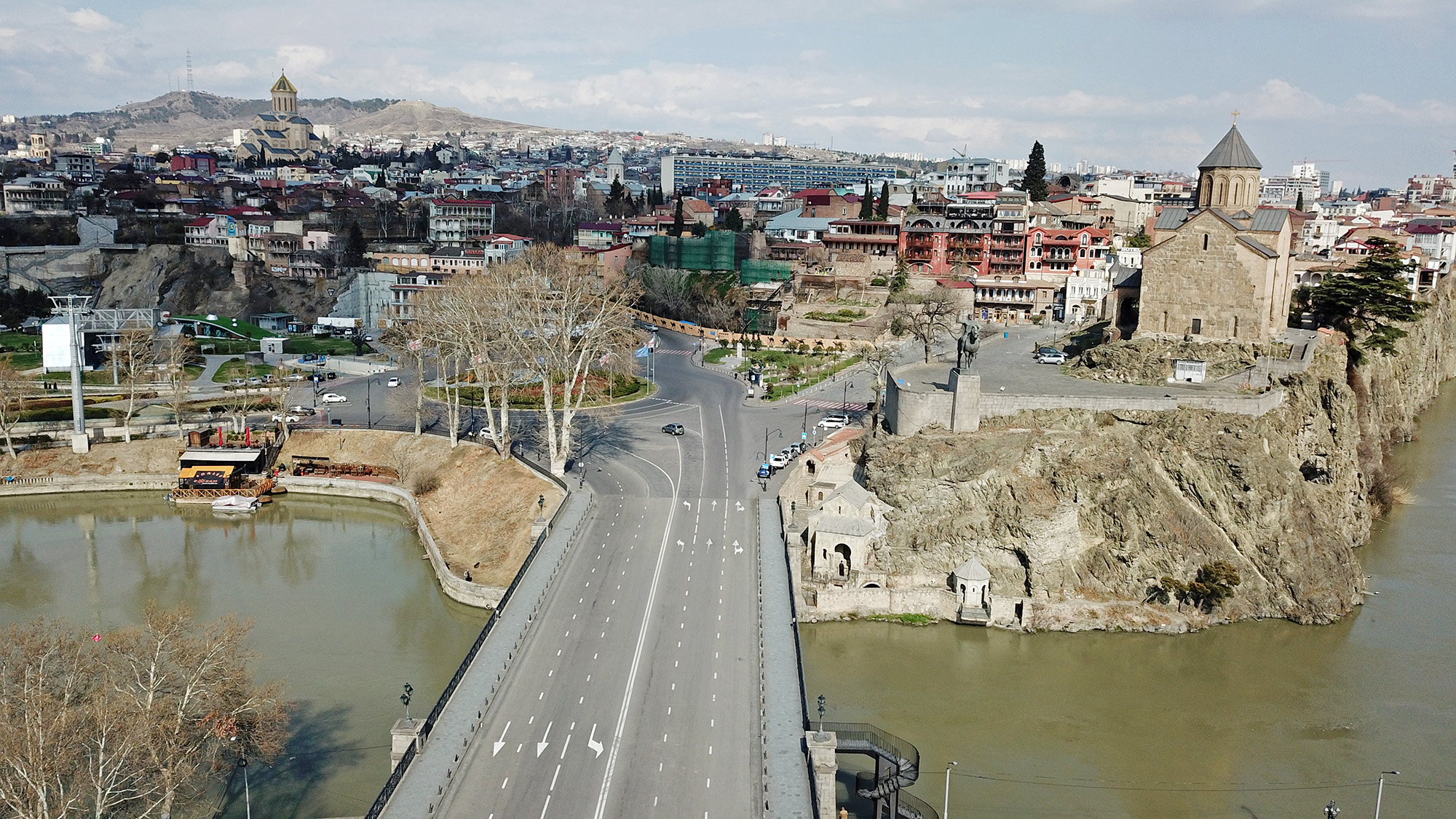
Unveiling the government’s post-crisis plans, Georgian Prime Minister Giorgi Gakharia has vowed to reopen Georgia to tourism in July, floating the possibility of creating ‘tourist zones’ that would be safe from the novel coronavirus.
In a briefing on 7 May, the PM announced that the government planned to allow international tourists to visit Georgia from 1 July.
He also announced a gradual lifting of restrictions on other economic activities and freedom of movement.
Gakharia said that the Georgian tourist industry already had accumulated experience in handling tourists in high-risk settings given that, according to him, they already hosted 19,000 Georgian citizens in quarantine.
After imposing a state of emergency, the Georgian government obliged those returning to Georgia to spend two weeks in quarantine zones, most frequently in hotels, to prevent asymptomatic carriers from spreading the virus.
Elaborating on the ‘safe zones’, the PM named the resort towns of Tskaltubo, Gudauri, Sairme, Abastumani, and Borjomi as possible locations. He did not specify how the locations would be ‘secured’ against COVID-19.
He did say it would be crucial to enhance control over critically important points of movement, ‘primarily, land and air borders’.
‘Thanks to better technologies, one would need to spend 1 hour instead of 14 days to be checked in order to enter Georgia’, Gakharia stated, without providing further details.
According to the PM, local tourism will be allowed to resume earlier, on 15 June.
The first sector of the economy to restart was the construction industry on 5 May.
Tax relief and other assistance
On 7 May, Gakharia promised to free businesses in the tourism sector from paying property taxes in 2020 and to delay their payment of income tax until the end of the year.
The PM also promised to subsidise payments on loans of up to ₾5 million ($1.5 million) by 80% for hotels with a turnover of ₾20 million ($6.2 million) or less.
The government also pledged to help them implement new safety standards and health protocols according to World Tourism Organisation guidelines.
Expanding on government’s plans for tourism, Economy Minister Natia Turnava vowed to help food establishments and tourist operators by involving them in a credit-guarantee scheme for their loans from commercial banks, and to finance the retraining of Georgian tour guides.

She said that Georgia needed a new post-pandemic rebranding, beyond the previous image of a country with ancient traditions, unique nature, and history.
Natia Turnava insisted Georgia should be known internationally as a ‘safe destination country’ with its safe tourism services aligned with post-coronavirus global market demands.
The minister did not expand on plans to renew international flights except to say they were ‘actively communicating’ with budget airline Wizz Air to draft a list of countries safe to bring tourists from.
Reopening the economy
Citing a ‘relatively better epidemiological situation’, Gakharia stated during a 7 May cabinet meeting that entry and exit of Tbilisi will be allowed again from 11 May. The same restrictions will be lifted in Rustavi and Gardabani on 14 May.
Marneuli Municipality, which has been under even stricter lockdown, is to reopen on 18 May. Gakharia said more testing was needed before reopening the area.
On 5 May, Georgia cancelled travel restrictions to and from Batumi and Kutaisi.

The PM urged the public to continue to practice social distancing and to keep wearing face masks.
Unveiling the government’s post-crisis plans on 7 May, Gakharia also vowed to allow ‘all production’ to restart and all retail and wholesale shops that have entrances to a street to reopen on 11 May. Footwear and clothing shops were excluded and shopping centres will also remain closed.
For now, the nationwide curfew remains in place. Georgia’s State of Emergency is currently set to expire on 22 May.







